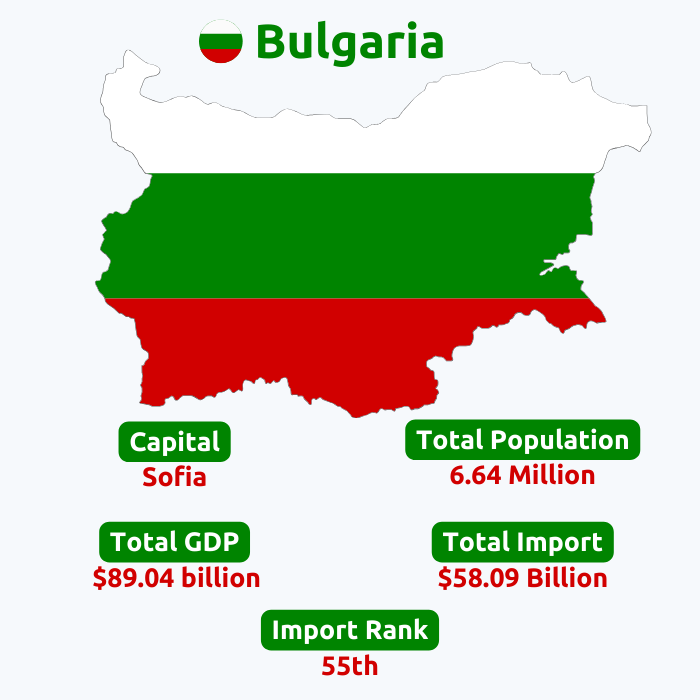Sample Data
Understanding Bulgaria Statistical Data for Imports
We obtain trustworthy data from organizations, shipping businesses, and customs ports. This Trade Data
contains a wide range of fields, such as HS codes, product descriptions, prices, quantities, origin country,
destination country, and port names together with currency values. For traders and marketers, this trade data is
crucial information that helps them to make informed decisions. From the HS codes and product descriptions to
the quantity and cost of each product, everything can be obtained through this trade data.
We have included a sample of this trade data for your convenience and greater understanding so
that you can see what the trade data looks like as a whole, with complete details.
To comprehend Bulgaria's import data, it is crucial to explore the specific types of products that the country imports, their sources, and the overall trade volumes. The analysis of import data facilitates a better understanding of the country's demand patterns and can help businesses make informed decisions about market enterprises, sourcing strategies, and potential partnerships. Based on Bulgaria statistical data for imports, Bulgaria imported goods worth $53.6 billion in 2023. The information you are given regarding Bulgaria shipment data and import data is highly helpful and educational. The most recent shipping bills, invoices, and other crucial trading documents serve as the foundation for the import data. You will undoubtedly find the information and database supplied to be very helpful in identifying the ideal market for gauging prospective gains and market risks. Reliable data is gathered from establishments, other shipping firms, and ports in Bulgaria that have been approved. Bulgarian trade data contains a range of fields, such as HS codes and product descriptions that include the quantity, price, and units of each exported good.
We obtain trustworthy data from organizations, shipping businesses, government authorities, and customs ports. For traders and marketers, this statistical trade data is crucial information that helps them make informed decisions. Everything can be obtained through this shipment data from the HS codes and product descriptions, the quantity and cost of each product. We have included a sample of the trade data for your convenience and greater understanding so that you can see what the trade data looks like as a whole, with complete details. So, as you can see, in this statistical report, we also include the number of goods needed to be imported/exported, HS codes, the product description, quantity, and price of each product from the country's shipment data. In this comprehensive statistical database, we ensure that every detail is meticulously recorded, which makes this trade data efficient for businesses worldwide.




